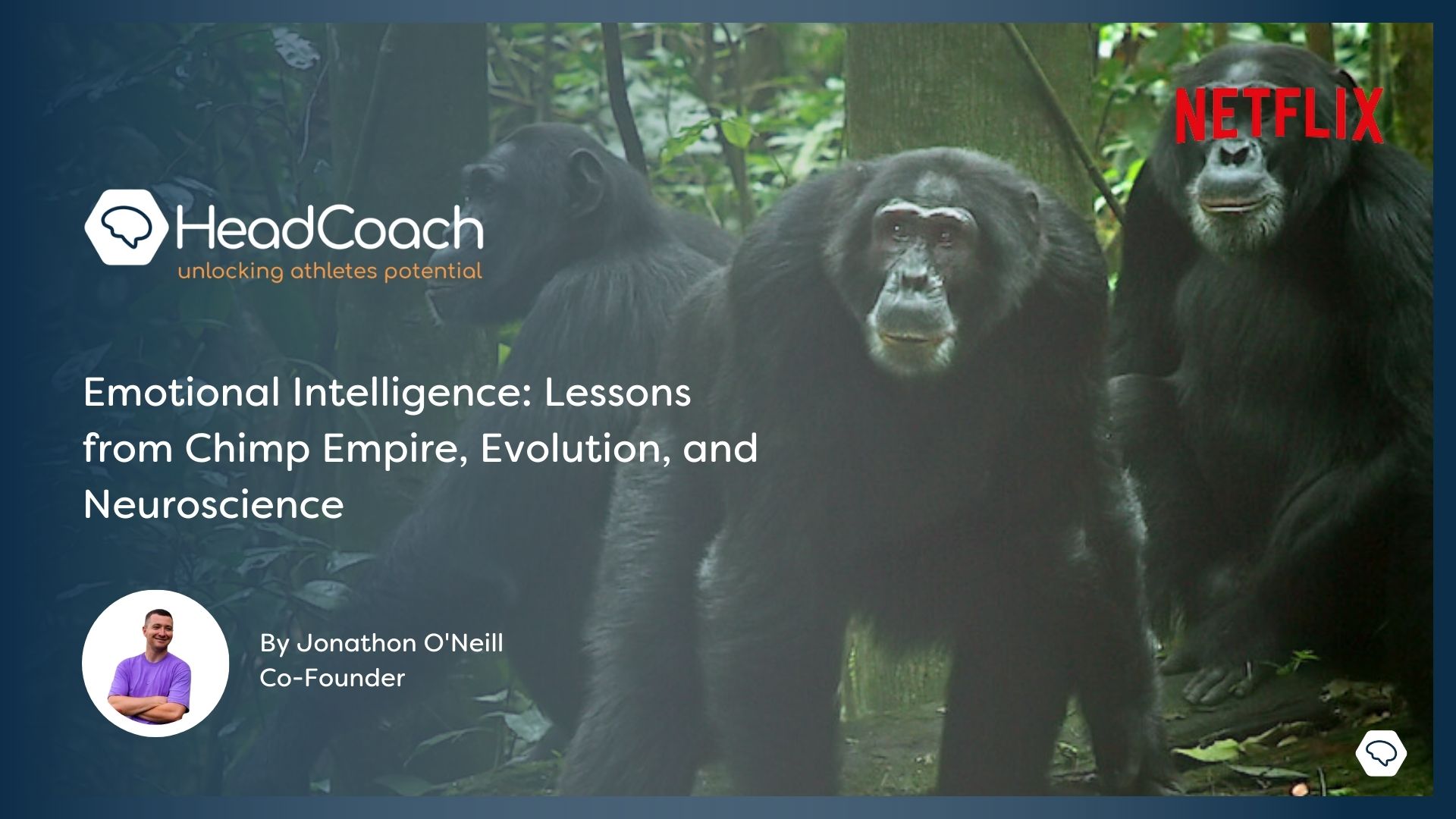This week, we tuned into "Chimp Empire" on Netflix, a documentary that follows the world's largest chimp troop in the Ngogo Forest of Uganda. With nearly 100 chimps, this colony is almost double the size of the average chimp civilization. As we immersed ourselves in their world, we couldn't help but ponder the significance of their cooperation and what it reveals about our own evolution as social beings. In this blog series we will look into what sports can learn from Chimp Empire, animals who we share 98% of our DNA with.
The Power of Cooperation
Cooperation lies at the heart of our human evolutionary success. It is the ability to work together in large groups that has propelled us to become the apex predators on Earth. In the chimp colony, cooperation is also a defining factor, despite the challenges that come with a group of this size. Led by an alpha chimp, Jackson, who rules through strength and never shows weakness, the colony has evolved to cooperate in a group almost twice the size of any other chimp civilization. Jackson forms alliances with other chimps to ensure his place in the group. This evolutionary adaptation highlights the power of cooperation in achieving mutual goals and survival.
The Role of Emotional Intelligence
At the core of successful cooperation lies emotional intelligence—an essential skill set that enables us to recognize, understand, and manage our own emotions and those of others. Emotional intelligence is not unique to humans; it exists within the social fabric of other highly cooperative species, including chimps. As I watched the chimp empire unfold, I couldn't help but marvel at how emotions played a crucial role in their interactions and cooperation.
Regulating Nervous Systems Through Emotions
Lisa Feldman Barrett, a prominent researcher in affective neuroscience, suggests that emotions are not just individual experiences but also tools for social communication and regulation. In chimp colonies and human societies alike, emotional cues and expressions serve as signals that help regulate each other's nervous systems. They align individuals' goals and interests, promoting cooperation even in the face of competition. From an evolutionary biology perspective, this regulation of nervous systems through emotions highlights how empathy has been hardwired over time as an adaptation to aid in the achievement of mutual goals and interests through both competition and cooperation. It underscores the evolutionarily adaptive nature of empathy and its crucial role in fostering successful social dynamics.
Building Emotional Intelligence for Cooperation
This brings us to the mission of HeadCoach and our mobile app. We understand that emotional intelligence is a vital skill for successful cooperation and empathy. Through our app, athletes have the opportunity to develop key emotional intelligence skills that enhance their ability to cooperate effectively within a team. Skills such as confidence, self-awareness, focus, and effective communication are embedded in our program, empowering athletes to navigate the complexities of teamwork and elevate their performance.
Unlocking the Potential of Cooperation and Empathy
Imagine a team of young athletes, like the chimp empire, doubling in size but maintaining their ability to cooperate seamlessly. With enhanced emotional intelligence, they communicate effectively, support each other, and thrive as a cohesive unit, transcending the limitations of talent alone. Our app serves as a catalyst for athletes to cultivate emotional intelligence, allowing them to regulate their own emotions, recognize and respond to the emotional cues of their teammates, and foster a culture of empathy and cooperation.
Conclusion
We couldn't help but reflect on our shared evolutionary history and the lessons it holds for our understanding of emotional intelligence, cooperation, and empathy. By recognizing that emotional intelligence is deeply rooted in our biology, we gain valuable insights into the power of emotions in regulating our social interactions.
At HeadCoach, we believe that emotional intelligence is a trainable skill, and our app serves as a catalyst for athletes to develop and strengthen these essential qualities. By nurturing emotional intelligence, athletes gain the tools to navigate the complexities of teamwork, cooperation, and empathy—skills that extend far beyond the sports arena and into every facet of life.
So, let us embark on this journey together, embracing the wisdom of chimp empires, the power of emotional intelligence, and the tools that have already brought us this far, as we unlock our true potential. Emotional intelligence, an evolutionarily adaptive tool, serves as a catalyst for maximizing both individual and collective success, fostering a world where cooperation, empathy, and achievement go hand in hand.





Leave a Comment